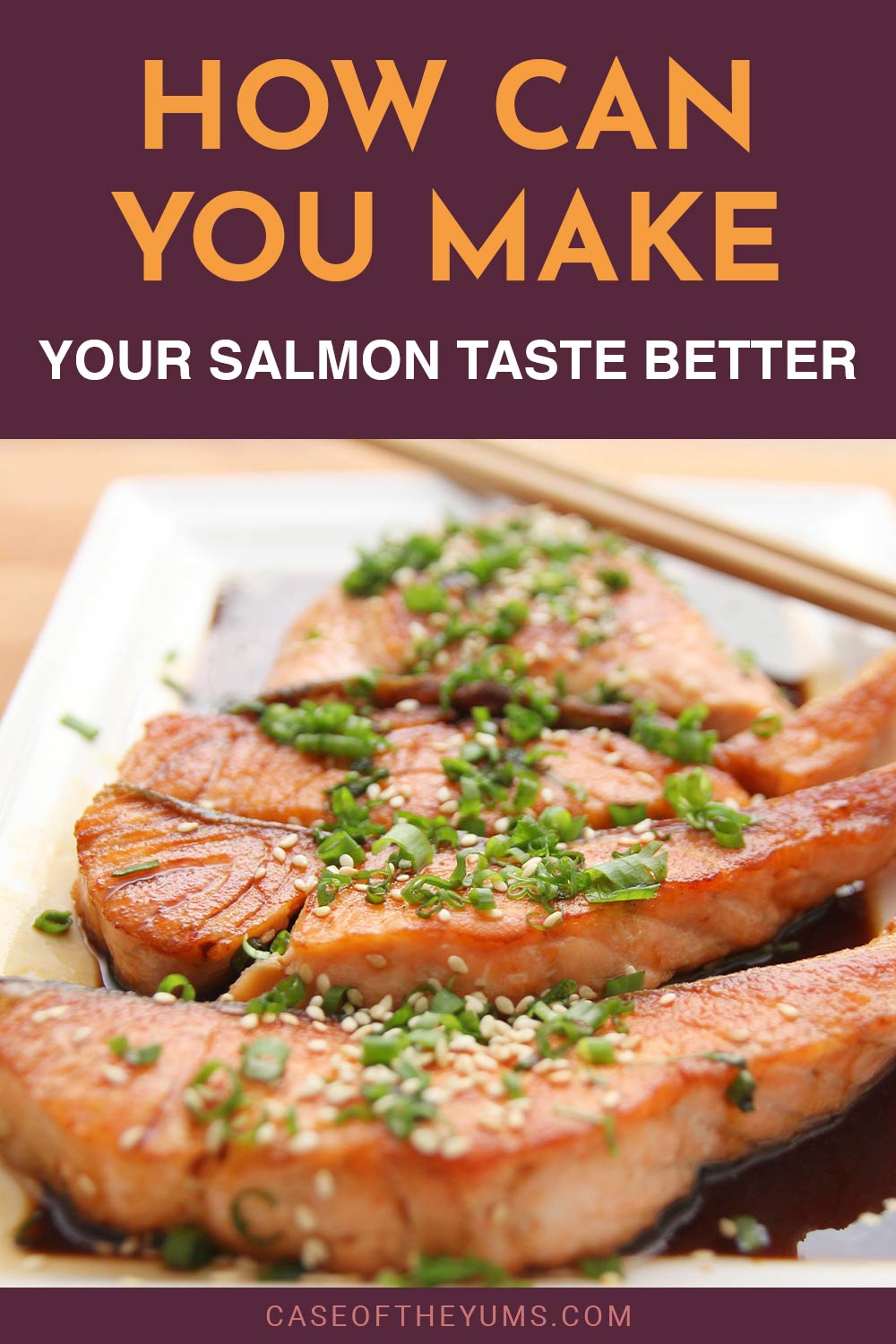How Can You make Your Salmon Taste Better
We may earn commissions for purchases made through links on our site. Learn more on our about us page.
There are going to be many ways to spice, marinate, and season salmon to make the flavors pop and excite the taste buds.
The most common agreeing flavor-releasing ingredient will be citrus, lemon slices especially. This will break down the filet enough to bring out the best of the salmon flavor.
When you consider preparing salmon, start by knowing how you’re going to cook it. Are you going to be using the grill, stovetop, or oven; from there, prepare your aluminum foil accordingly.
The foil will trap the sauces, seasonings, and other flavorings, keeping them where the salmon can absorb all that lip-smacking goodness.

How Do You Enhance the Taste of Salmon?
There are going to be many opinions of flavor, especially what enhances the flavor of salmon filets and steaks; as mentioned above, citrus does wonders in opening up the meat to being seasoned and marinated. From there, you can go different routes.
Grilled salmon steak recipes will have you garnishing the meat, adding a slice of lemon and then melting butter, sprinkling some pepper and salt. Then you can grill using the skin or foil, depending on preference.
Or you could bake the fish, using eggs to allow breadcrumbs to stick, squirts of citrus juices, and baking to a nice crispy texture can also technically enhance the taste of the salmon.
Which Spices Can You Use?
When it comes to fish, there are going to be staples, such as the previously mentioned lemon and citrus flavors. Salt and pepper will also be a solid staple and starting place for salmon and most meats.
From other chefs’ experiences, spicier food lovers will want to use Cajun seasonings or blackened seasonings to get that kick of heat. For a Mexican spin on flavor, use Fajita seasoning with squirts of lime.
Another flavor choice that has become popular is marinating the salmon with Teriyaki, possibly with a pinch of lemon pepper, or trying using a recipe that calls for the salmon to be glazed with bourbon sauce.
Should You Season Salmon before Cooking?
There are two approaches to this. First, depending on the recipe, you may have to cook the salmon to be prepared for a recipe as a pre-cooked product. In some of these recipes, you will need unseasoned cooked salmon.
Otherwise, it would be highly recommended that you season salmon. Even when out on the trail having small packets of seasonings can provide a ‘best meal ever’ experience.
Remember, citrus helps with flavoring the salmon filets and steaks, opening the membranes for better absorption of seasonings and sauces. It can improve the taste and texture of salmon, which can then be paired with a light wine and pasta for a meal idea.
Should Salmon be Cooked Fast or Slow?
When it comes to fish, there is hardly a situation where the filets or steaks are better cooked fast. Doing so prevents sauces from penetrating the deepest layers of the salmon unless your recipe calls for flakey pieces of fish.
When you slow bake, cook, or grill salmon, it allows for techniques such as melting butter as the fish cooks or using wine at just the right moment for robust flavor.
Plus, when you get to the finished product, the meat is tender and full of flavor; you and your guests will notice the difference when the Salmon is prepared correctly.
Should You Cook Salmon with Butter or Oil?
Both to be straight to the point; butter can offer a nice flavor addition while oil can help spices and seasonings penetrate the salmon filets.
Classic foil recipe for the grill includes using melted butter to layer the top of the filet, season, and add a slice of lemon, with an un-melted square of butter on top with garnish.
Cooking oils are going to be needed when butter is not an option, especially when you use pans and other similar cookery, to prevent sticking. Even oils, as part of a vinaigrette, can be a primary part of the recipe and irreplaceable as part of a sauce.
Final Thoughts on How can You make Your Salmon Taste Better
When it comes to using butter, it has a unique flavor in a solid state and in a melted state; when using it for salmon, it can get into the meat with the aid of citric juices, providing full flavor and a chance for seasonings to get deeper into the filets and steaks.
The most important points will be to remember to cook slowly, be patient with the salmon, use citrus fruits when possible, and use foil to protect the filets and steaks from falling apart on the grill or campfire oven.
One last thing, fresh-caught salmon only needs lemon slices, salt and pepper, and melted butter.



Leave a Reply
You must be logged in to post a comment.